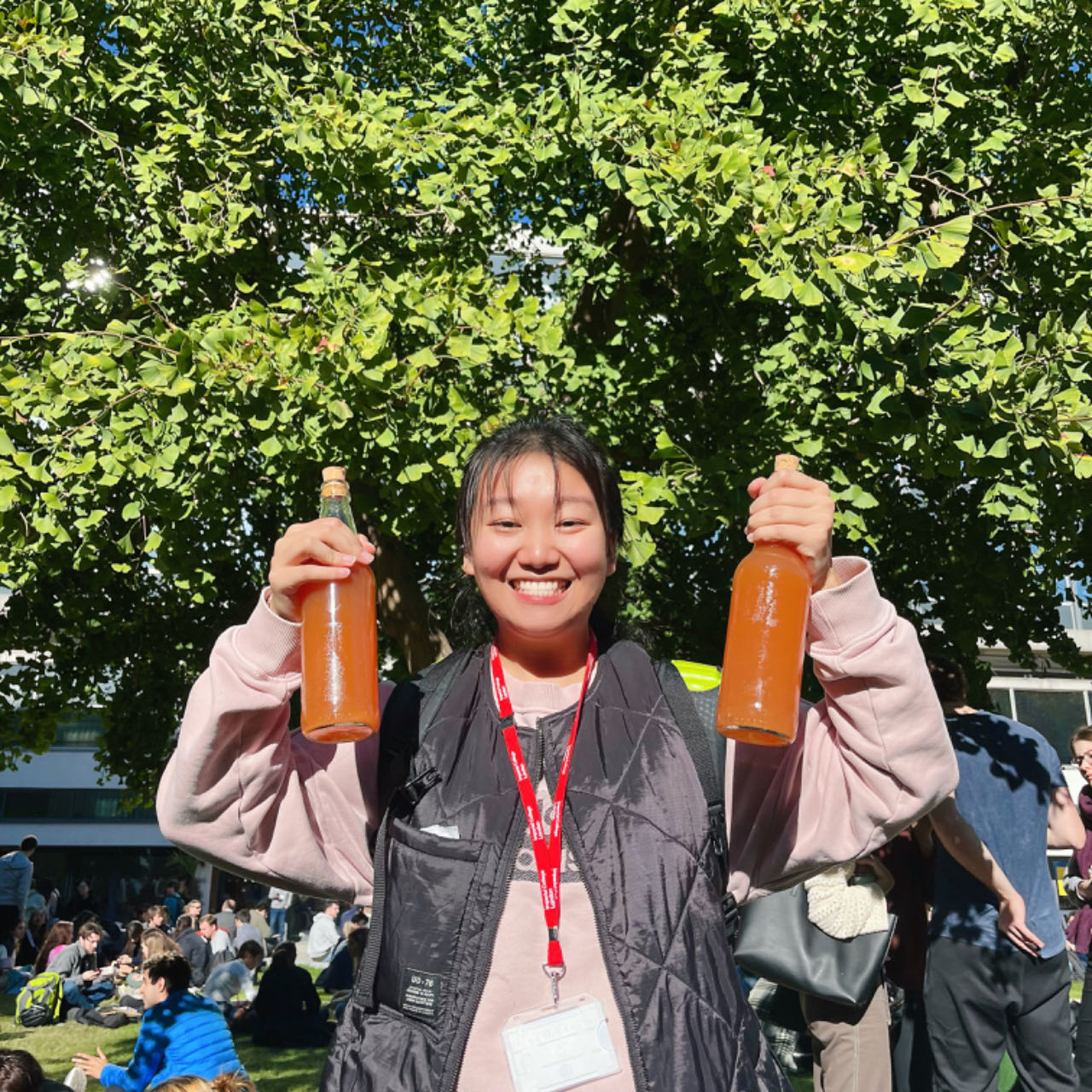What attracted you to the MRes in Biomedical Research (Respiratory and Cardiovascular Science)?
I did not have a very complete lab experience during my undergraduate years due to the pandemic, and it was really important to me to learn about wet labs and to be responsible for a real research project. Compared with other courses, MRes in Biomedical Research provided me with two different projects, which allowed me to have a better understanding of different areas. There were a lot of options I could apply, and most importantly I could learn a lot of skills and techniques in lab research or academic writing.
What specific aspects of the teaching or course format did you enjoy the most?
Firstly, I really enjoy the weekly teaching course, because the lessons are very attractive and novel, which were taught by different professors. Then, the very academic course format of making posters, giving oral presentations and viva made me feel as if I could prepare complex projects and it gave me clear and logical ideas about project organization. Finally, the PI or supervisors are really nice, and there were weekly group meetings to discuss the project process, making me feel supportive and confident.
How do you think the course will impact your future career?
 The reason why I chose this course is because I would like to be a researcher in the future. Biomedical Research with two different research projects gave me some insights into lab works, academic writing, and organization skills. Very details lab work at Imperial College helped me to solve research issues as I have already met those problems in the lab and was supported by helpful supervisors.
The reason why I chose this course is because I would like to be a researcher in the future. Biomedical Research with two different research projects gave me some insights into lab works, academic writing, and organization skills. Very details lab work at Imperial College helped me to solve research issues as I have already met those problems in the lab and was supported by helpful supervisors.
Why did you choose Imperial College London?
As well as the reputation of Imperial College being top in the world, IC is famous for academic research not only in teaching areas. As a master's student, it was important to perform some research projects independently and generate my own ideas instead of attending many lectures. I believed Imperial could fulfil my demands and it did.
What did you most appreciate about your time at Imperial?
Of course, the lab work in both two projects was amazing. All lab mates and supervisors were really nice and supportive. I always had a lot of questions, and met some troubles, but they were there to help me. I liked the two social activities during course induction and project 2, giving us opportunities to seek some friends and share the project process to balance work and life. Finally, our stream leader is very organized and happy to support all students, and he is nice and humorous.
What are you doing now? And how has the course helped with your career?
I am now working as a microfluidic engineer at Puissan Biotech in Helsinki, Finland. I conducted my first project in organ-on-a-chip fields, which was literately the first time I heard about this research area. During my first project, I learnt how to make a chip, culture cells and most importantly, have a clear idea of organ-on-a-chip applications in biomedical research or clinical areas. Thus I decided to find some companies related to this field because this area is multidisciplinary covering biomedicine, biology, bioengineering, and physics, which could challenge me, and importantly it is very interesting. So in general, biomedical research and Imperial College provided me an excellent platform to know this novel and attractive area for my career.
Find out more about the MRes in Biomedical Research and apply